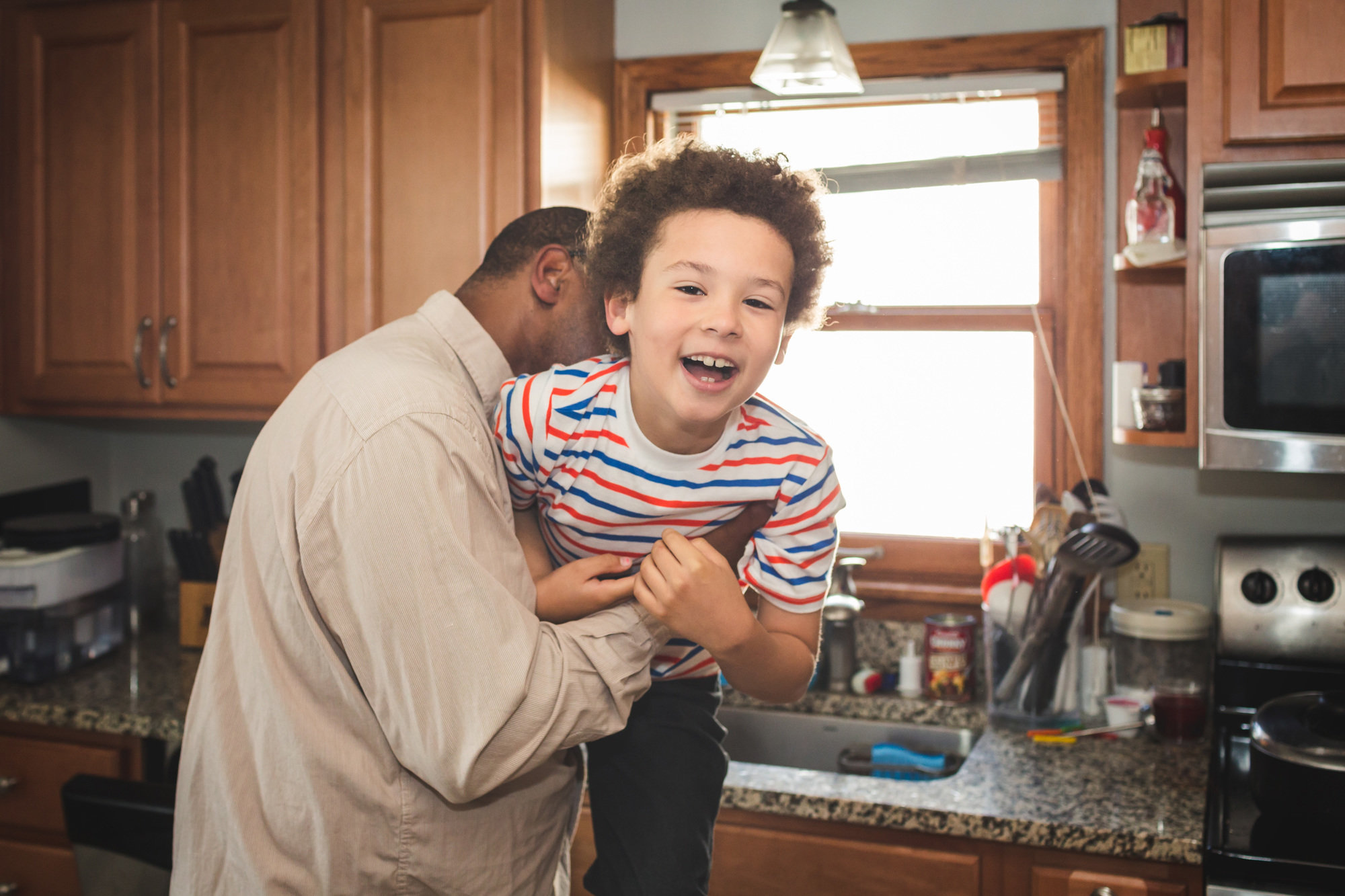When I look at my son, I see his curly hair, his warm brown eyes, and his big smile. I see a kid who loves Legos and snakes and jokes with the word "butt" as the punchline. My biggest fear, however, is that someday someone will look at him and see just another black kid.
My son was a newborn when Barack Obama was elected president. The night of the election, I sobbed when it became clear that Obama was going to win. I couldn't help but think about my father-in-law, who joined the army when it was still segregated, and about my husband, who was born in a time when interracial marriage was still illegal in 22 states. I watched election results come in while nursing my son and I felt such hope. It seemed so powerful that my son would grow up knowing that someone like him, biracial, could be president. I thought about how someday we'd tell Miles about this night and about how it changed our country for the better.
I worry now that I was too hopeful.

More from The Stir: What I've Learned About Race & Motherhood From Having a Son Who Can 'Pass' as White
It has been a hard year when it comes to being optimistic about matters of race. My son learned about the Civil Rights movement in school this year. He's been asking tough questions ever since: Why did they kill Martin Luther King Jr.? Would they have wanted to kill me too? Would I have had to drink from the black fountain and go to the separate schools? Why did people who look like you not like people who look like me? What is the n-word?
While he learns about the past, my husband and I worry over the present. What do we tell him about discrimination and the fact that there are still people who think that he is more likely to be a criminal because his skin is brown? How do we explain it when the police kill a 12-year-old while our son still thinks police, like his uncle Jeff, are all heroes? What do we say when he sees footage on the TV of the latest Black Lives Matter protest and wonders aloud why they are so angry? He wants to understand what all the yelling is about and I just want to keep him innocent for as long as I can.
More from The Stir: The Average Age of First-Time Moms Around the World — How Do You Compare? (PHOTOS)
In a lot of ways, my family is lucky. We live in a large and progressive city. Our next-door neighbors are another biracial family. My son has never had the experience of being the only child of color in his class. Miles is bright and funny, and despite a bossy streak (probably inherited from me), he is never short on friends to play with. He's never been called the n-word; not yet, anyway. He largely still understands racism as a thing that used to happen, a long time ago in states way down south.
Sometimes I feel ill-equipped to know how to prepare him for the day he realizes that racism isn't just something they cover in his history class or that exists below the Mason-Dixon line. I wonder if I should just let my husband carry the weight of those conversations. I imagine that maybe it is easier for my white friends, raising white children. Maybe the world doesn't seem so scary for them. Maybe the news stories don't hit quite so close to home. Maybe their kids are just a little bit luckier, a little bit safer than mine.
More from The Stir: Explaining #BlackLivesMatter to Kids: How One Dad Made It Easier
I don't have quick and easy answers to these questions, but I know I have to be a part of the conversation. So I do my best to balance truth with optimism, hope with reality. And I pray that by the time my son is raising his children, all of the things I hoped for on that election night eight years ago will have come true.
Images via Sarah Hudson Photography; design by Anne Meadows




